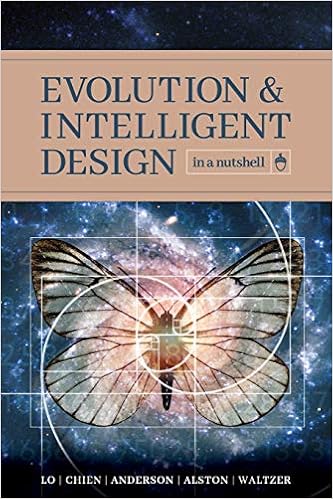
Evolution and Intelligent Design in a Nutshell by Thomas Y Lo, Paul K Chien, and Eric H Anderson just dropped:
A few years ago I happened to turn on my car radio and caught the end of a lecture segment on public radio. Evolutionary biologist and prominent atheist Richard Dawkins was the guest. Dawkins held the position of Professor for the Public Understanding of Science at Oxford University for more than a decade, and one of the questions posed to him made me quickly reach over and turn up the volume.
“How close are we to understanding the origin of life?” the moderator asked.
I half-expected Dawkins to acknowledge the many difficulties with abiogenesis, to admit that this was a huge open question, and to confess that we don’t yet have any good abiogenesis scenarios, while claiming, as so many proponents of evolution do, that the origin of life is a separate question from biological evolution. That is, I thought he might concede the many widely acknowledged difficulties still facing the origin of life but try to contain the damage for the materialistic outlook by emphasizing that at least things were well in hand for evolutionary theory after the origin of the first life.
To my surprise, Dawkins responded rather glibly that we have a pretty good idea how life started. Yes, there are some challenges, he acknowledged, but we know what happened in broad strokes and at this point, he implied, we are basically filling in the details.
Having studied the origin of life at length and being aware of the many and acute problems with abiogenesis theories, it struck me as more than a little irresponsible for someone wearing the title of “Professor for the Public Understanding of Science” to claim in a public venue to tens of thousands of listeners that we have a pretty good idea how life started. (more)
Eric H. Anderson, “Book Excerpt: A Factory That Builds Factories That Build Factories That…” at Evolution News and Science Today
If Dawkins stated the facts, the way James Tour would, the latte-rati who form the bulk of the audience for that type of programming would ignore him, he wouldn’t be invited again, and he would sink into obscurity. The power of his enduring popularity lies precisely in the fact that he reassures them that their mythologies are Facts. And they sense that they are cleverer than their neighbors.